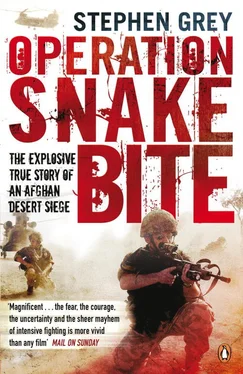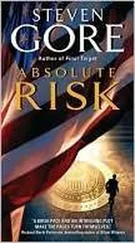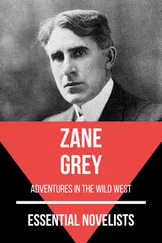It was a message taken by Semple’s son, Eireamhan, down a crackly phone line in November 2001 that had begun it all. A Taliban leader named Abdul Hakim Munib asked the boy to take down his satellite phone number. By now Kabul had fallen into the hands of the Northern Alliance and the Americans. The Taliban had become fugitives. When Semple got back to him, Munib said, ‘Whatever the UN is doing, I want to be part of it.’
The Americans were on the hunt for Osama bin Laden and they regarded his Taliban allies as equally complicit in the attack of 11 September. But Semple, in his role as a United Nations official, was able to work around the edges – helping those Taliban who wanted to declare early and publicly that they backed the new government. He helped bring them into the loya jirga , the gathering of tribal leaders that had endorsed Karzai as president.
Munib ended up as a provincial governor. Another one who phoned up was an old Mujahidin fighter named Salam Rocketi (awarded that name for his skill in the use of rocket-propelled grenades). Rocketi had become the Taliban’s eastern corps commander. But Semple helped him survive the vetting process for parliamentary elections, and he was elected. There were others he could not save, who wanted to join the new government but were denounced as terrorists and who ended up in Guantanamo Bay, he said.
From the very beginning, Semple saw a tragedy unfolding. There had been those in the Taliban who were hardcore Islamists, people who fight foreign forces. But there were others who had joined for different reasons, for example because they welcomed the security that the Taliban had brought, or just for career reasons.
Now, with the ‘war on terror’ declared, every Talib was being branded a terrorist. US special forces hared round the country looking to catch them ‘dead or alive’. Some managed to slip back peacefully to their homes. But they lived in fear of denunciation by jealous rivals. So some fled across the border into Pakistan – and back into the patronage of the Taliban’s old leadership.
‘What you had was a shift to predatory mode,’ Semple said, ‘where the warlords and those with connections to Karzai came back and started grabbing land and booty. They were seizing weapons, cars and stored opium. And sometimes they were tricking Americans into going after so-called terrorists. It forced people over to Quetta – to where the Taliban leadership had stayed on.’
Two years after 9/11, the old Taliban leadership started to get new sources of money. They were physically closer now to Al Qaeda and tapped into the same Gulf Arabs who were prepared to fund the terror network. And the actions of the foreigners and the warlords Karzai had installed started to encourage the idea of a war against the foreigners. The Taliban had started to recrystallize.
Now employed by the European Union, Semple was tasked to assist an official reconciliation programme – reaching through his old contact books and helping steer people out of the insurgency. For his partner he recruited General Naquib Stanikzai, who had quit as head of the Taliban’s air force on the day after the US bombed all his planes. Stanikzai was a nationalist who had served under one regime after another. He had the virtue that almost everyone on both sides knew him.
Nearly 5,000 people were ‘reconciled’ through the official channels, and in a few cases it did some good. President Karzai claimed the reconciliation was vital. He used to get emotional on the subject, once appearing tearfully on television and offering to go round and knock on the door of Mullah Omar and another top rebel commander to urge them to end their violence. ‘If I find their address, there is no need for them to come to me, I’ll personally go there and get in touch with them,’ he said.
But Semple became convinced that Karzai’s public rhetoric and the whole official programme was bogus. ‘I realized the official show was seriously underperforming; no one in government really gave a damn.’ Few of those ‘turned’ were anything significant. Those who were important were treated abysmally, and worst of all the security guarantees were ‘totally meaningless’. Semple and his team had given assurances to people who changed sides but ‘before you knew it they had been targeted by corrupt, wicked officials and locked up’.
Semple also thought it was pointless targeting individuals. Whole tribes, villages and families were involved in the rebellion, and they needed to be dealt with collectively. He began to think of the western-funded official programme as simply another way of handing out money to the cronies of those in power.
It was clear to him that the talks with the Taliban had to be bolder and distant from the official channels. There had to be another path opened. But he knew this too would need government approval. Only with the backing of Afghan security agencies could the ‘package deals’ be guaranteed to protect a group’s security and livelihood after they changed sides.
Of all the ten provinces he was working in, Semple found most interest in Helmand, particularly from the British there. He would reckon he got in touch with all but three or four of the province’s rebel networks. ‘I was able to work deep into the insurgency, face to face, heart to heart, with a large proportion of insurgents in Helmand.’
That summer, Taliban leaders and elders in six villages up the river from Gereshk were contacted. At least six Taliban leaders were reconciled, with 150 fighters. Among them were Mullah Qassim and Mullah Bashir, the Taliban that the Coldstream Guards now had under their wing. On the ground the initiative was backed by the British. But Semple made sure he got Afghan backing, both from the Interior Ministry and from the governor of Helmand.
In the end he had probably spoken to more than 200 Taliban commanders. ‘I think I probably got to meet more commanders than Mullah Omar himself,’ he told me with a smile, referring to the reclusive Taliban supreme leader.
After they met the leadership of the ex-Taliban Group down in Gereshk with Semple, Captain Sugden and his sergeant-major, Michael Murphy, helped them set themselves up as a militia running a checkpoint in the green zone. They used to ask them about life in the Taliban and why they had joined. The answer to them was obvious, recalled Sugden, and not ‘particularly deep.’
‘Helmand was an utter Taliban stronghold. So, if you were a young man, you looked at this tidal wave of Taliban force that was sweeping through Helmand. Everyone else had joined the Taliban, why would you not? It was just the thing to do.’
After the Soviets had left, they said, there had just been total chaos. The Taliban had brought a religious and calming influence. ‘They used a lot of force, but they were seen as a good thing. And of course they are all Muslim so they were glad to have a Muslim entity taking control.’
They only got disillusioned when they saw some of the Taliban’s more brutal side – like the corporal punishment, the death penalties that they’d dole out for various minor transgressions like whistling or dancing or humming a tune. By then they were trapped and could not pull out. For Sugden, all this underlined ‘how important it was to extend the olive branch to those kinds of people’.
Sugden and Murphy got to like the Group more than anyone they had dealt with. Compared to the Afghan police, whom they described as the ‘dregs of society’, these men were polite, enthusiastic, punctual and did whatever they promised. Were these men a sign of how NATO’s enemies could become their allies? The British could only hope.
PART 2
The Population Is the Prize
‘You know, some brigadiers and battalion commanders aren’t going to like what I’m going to tell them.
Читать дальше












